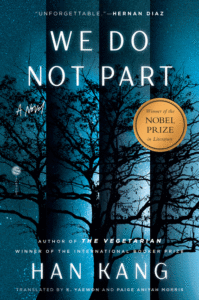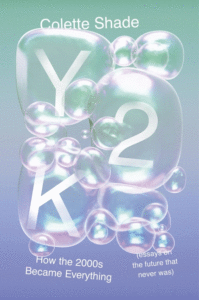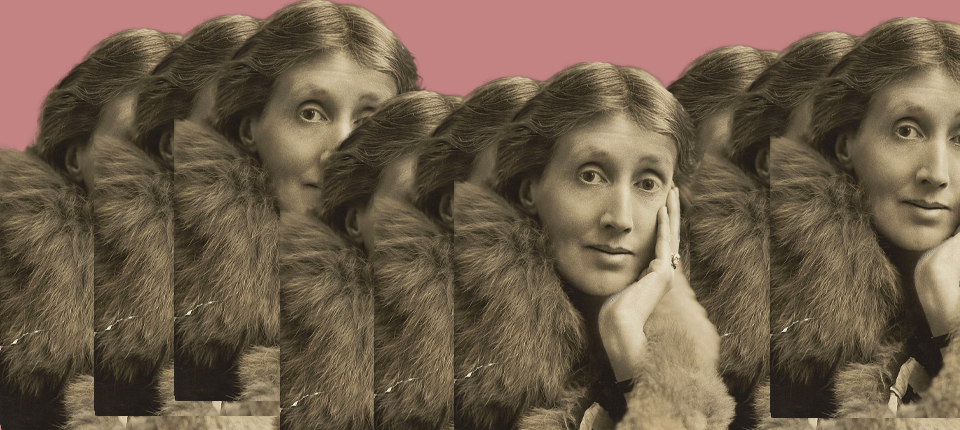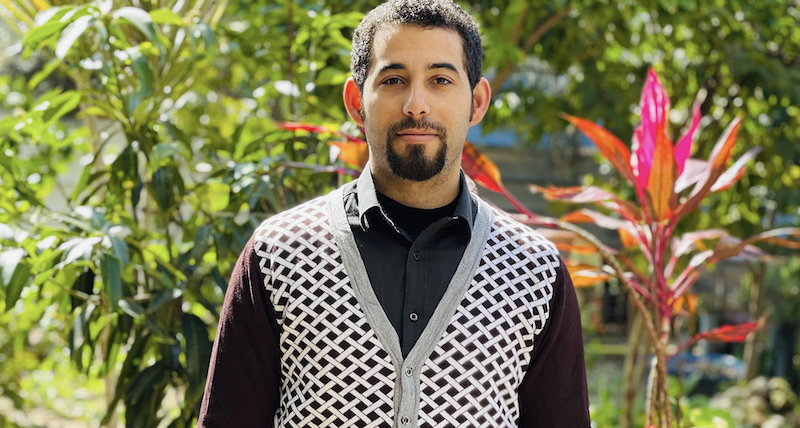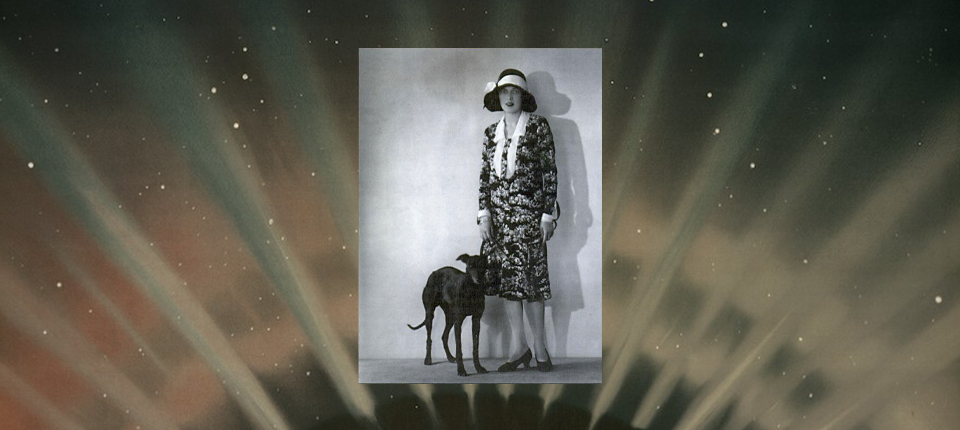Our basket of brilliant reviews this week includes Robert Rubsam on Han Kang’s We Do Not Part, Becca Rothfeld on Imani Perry’s Black in Blues, Laurence Scott on The Uncollected Stories of Mavis Gallant, Alexandra Jacobs on Charlotte Shade’s Y2K, and Gretchen Sisson on Kristen Martin’s The Sun Won’t Come Out Tomorrow. Brought to you by Book Marks, Lit Hub’s home for book reviews. * “How to make art about such an atrocity? Human Acts affectingly chronicled the legacies of Gwangju by providing us with multiple views on the event and its aftermath. Yet this approach no longer seems sufficient for Han. In We Do Not Part, her narrator describes omitting especially distressing details from her own book about Gwangju, the soldiers who torched unarmed protesters with flamethrowers, ‘the people rushed to emergency rooms on improvised stretchers, burn blisters on their faces, their bodies doused in white paint from head to toe to prevent identification.’ When faced with the true horror of her subject, she feels that she turned away. We Do Not Part seems like an attempt to look this past head-on. Han fills it with documents, memories, photographs, and facts, providing as full an accounting of the Jeju massacres as she can. Yet rather than dramatically resurrecting the victims in order to kill them again, Han keeps her focus tight on Kyungha, an approach at once bracingly concrete and thrillingly mysterious. … “That this information is being presented by a possibly supernatural being does not undermine its blunt reality, and Han relates this slow unraveling with a cold sobriety, refusing to allow poetic language to come between the reader and these images of mass graves, thousands upon thousands of carefully catalogued skulls. If Human Acts risked turning away into dramatics, We Do Not Part douses us in the clear reality of atrocity like a gradually engulfing flood tide. … “We Do Not Part presents us with a series of superimpositions of fact and fiction, past and present, the living and the dead, suspending multiple states simultaneously and attempting only provisional conclusions. It’s the very best kind of storytelling, poetic and ambiguous without ever once shying away from the horrible historic truth. We Do Not Part is like one of those birds Han so often deploys as metaphor: majestically vulnerable and robustly weightless, a solid body that rises through air.” –Robert Rubsam on Han Kang’s We Do Not Part (Vulture) “Perry is also expert at a less-sterile mode of writing, and what follows is a kind of affective investigation into the many roles of blueness in Black life. Black in Blues is clearly a learned work—it is full of archival gems—but it is also a lyrical one. It is not an ‘exegesis on blue,’ Perry assures us, but an attempt to ‘write toward the mystery of blue and its alchemy in the lives of Black folk.’ In the micro-essays that write toward this mystery, there are many shades of blue. There is the deep blue of indigo, prized by the free Black inhabitants of Benin and later cultivated under horrific conditions by their enslaved descendants in America. There is the ‘ocean blue,’ famously sailed by Columbus and later traversed by enslaved people on their way across the treacherous Middle Passage. There is the blue of dark Black skin—in the Middle Ages, Perry explains, ‘the people we now call Black were referred to by the English as “blew,’ or blue’—and the blue of the ‘blue-back speller,’ a textbook from which many Black children learned to read after the Civil War. … “Who, besides Perry’s young cousin, knew there were this many shades of blue, this many blue objects, this many blue resonances? Black in Blues is jostling, sometimes dizzyingly so. Perry’s justification for its discursiveness is not entirely convincing. ‘You might be thinking by now that this blue thing I’m talking about is mere device, a literary trick to move through historic events,’ she concedes. ‘And if blue weren’t a conjure color, that might have been true. But, for real, the blue in Black is nothing less than truth before trope.’ But even if blue were a literary device, the book would not be spoiled. What unites its disparate contents is a mood, which is just as valuable as an argument. It is a contrapuntal document, musical and moving, and no less rich for its tumbling abundance. In place of clear conclusions are persistent themes, like recurring notes in a song.” –Becca Rothfeld on Imani Perry’s Black in Blues: How a Color Tells the Story of My People (The Washington Post) “She wrote two novels, a play and essays on life in her adopted Paris, but the short story was her imagination’s home. Its regular inhabitants were displaced people: immigrants, orphans, tourists, marital escapees, refugees, characters in the wrong place at the wrong time, caught out in unseasonal weather. They haunt boardinghouses, dilapidated hotels, tacky resorts, train carriages. Good luck getting a hot bath. Over five decades, The New Yorkerpublished 116 of these deadpan, icy stories mined with moments of brutal humor. I first heard of Gallant, who died in 2014, from a YouTube video nine years ago, listening to Fran Lebowitz declare her ‘the best short-story writer in English.’ I thought: Wait, who? Lebowitz reserves puffs exclusively for cigarettes, so I sat up. Since then, I’ve added my own equally bold claim: Gallant is the genius absurdist of the 20th century … No writer is more attuned to how we live by these personal similes and synecdoches—where the part stands for the whole—while expecting to relate to one another. Horror for Gallant is getting locked inside other people’s codes of meaning, their arbitrary exchange rates. … “Why is this fun? Some people enjoy the artificial fear of a slasher movie. With Gallant at the wheel, telling jokes over her shoulder, I enjoy being aesthetically carsick. The exhaust fuming off her pages, reeking of life’s absurdities and pathos, is invigorating. She blurs her reader’s sight, but in that blur are images of real, moving people. This is Gallant’s moral vision. She knew we’re at our most dangerous when the road seems clear and steady, when we look happily at the view with a caramel in our cheek, thinking we can measure, from the scantest evidence—a name, a badge, one humid afternoon—what someone else is really like.” –Laurence Scott on The Uncollected Stories of Mavis Gallant (The New York Times Book Review) “Y2K was the quaint-seeming, almost biblical fear that computer systems would be scrambled by the switch over from the 20th century to the 21st, causing planes to fall from the sky and banks to fail. Those three symbols delineate not just the year 2000, argues the journalist Colette Shade in a lean, nimble and profoundly depressing new book of memoiristic essays, but an entire era with its own identifiable, balloonish sensibility: stretching from approximately 1997 to the financial crisis of 2008, when banks actually did fail. … “Uncle Paul personified the era’s false promise of unlimited peace and prosperity, the supposed triumph of neoliberalism and meritocracy, Francis Fukuyama’s ‘end of history’ colliding with this bouncy new thing called the World Wide Web to produce a national mood that was ‘ecstatic, frenetic and wildly hopeful.’ In Shade’s telling, 9/11 was not the end of the ’90s, as Chuck Klosterman and others have argued, but a dark chapter in an ongoing story of national triumphalism. … “…her writing throbs with a vibrant political indignation: about climate change (the thought of which, for a time, made her almost suicidal); about racism, which she and her ‘comfortable white’ peers were taught to believe was over; and about the way mushrooming media has made historically significant images like the Abu Ghraib photos far, far more obscure than they should be. What is to be done? Shade has no answers, no new Template for Trump 2.0. But jumping back into the junk heap of our collective past, she kicks up a lot more than just body glitter.” –Alexandra Jacobs on Charlotte Shade’s Y2K: How the 2000s Became Everything (The New York Times) “Kristen Martin untangles imagined orphanhood from its severe and persistent reality. Her book details how parentlessness has become a way to transform characters into blank slates to write stories of charity or adventure. As Martin writes, ‘orphans are expedient protagonists’: they can be rendered vulnerable, pitiable victims in need of a savior or champion or, alternately, as feisty, self-sufficient heroes, navigating adult challenges without the meddlesome oversight of adults. Underlying Martin’s examination is her own story of losing both parents at a young age, which means that she never forgets that orphanhood is neither a trope nor a metaphor. None of these narratives reflect the lived experiences of orphanhood throughout American history—experiences that have been fundamentally shaped by which children and which families are deemed deserving of care. … “The history is sweeping, damning and infuriating, and requires the depth and care that Martin deploys to understand it fully. Yet, at the root of her book are core questions that are only increasingly salient: as a country, who do we believe is a worthy parent? Who do we believe is a deserving child? Or, to put it specifically and bluntly: What is the value of the relationship between a parent and child on the southern border? Do we see a home with an empty pantry as the home of a neglectful parent, or a poor one? Will we follow historical precedent and frame immigrant children as dangerous, and Black children as undeserving? Do we have a collective, social obligation to care for vulnerable children or families? Martin’s book contributes to a cultural understanding in which orphanhood is neither manufactured, nor idealized, nor divorced from its dark history. Yet, it still carries an optimism that would make Orphan Annie proud—the hope that we might move beyond the fictional tropes and toward an accountability to American families that we have not yet achieved.” –Gretchen Sisson on Kristen Martin’s The Sun Won’t Come Out Tomorrow: The Dark History of American Orphanhood (The Washington Post)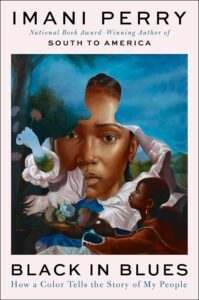
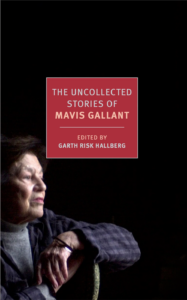
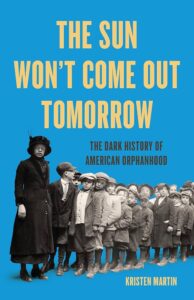

 By Literary Hub | Created at 2025-01-23 10:20:03 | Updated at 2025-01-26 06:35:41
2 days ago
By Literary Hub | Created at 2025-01-23 10:20:03 | Updated at 2025-01-26 06:35:41
2 days ago

